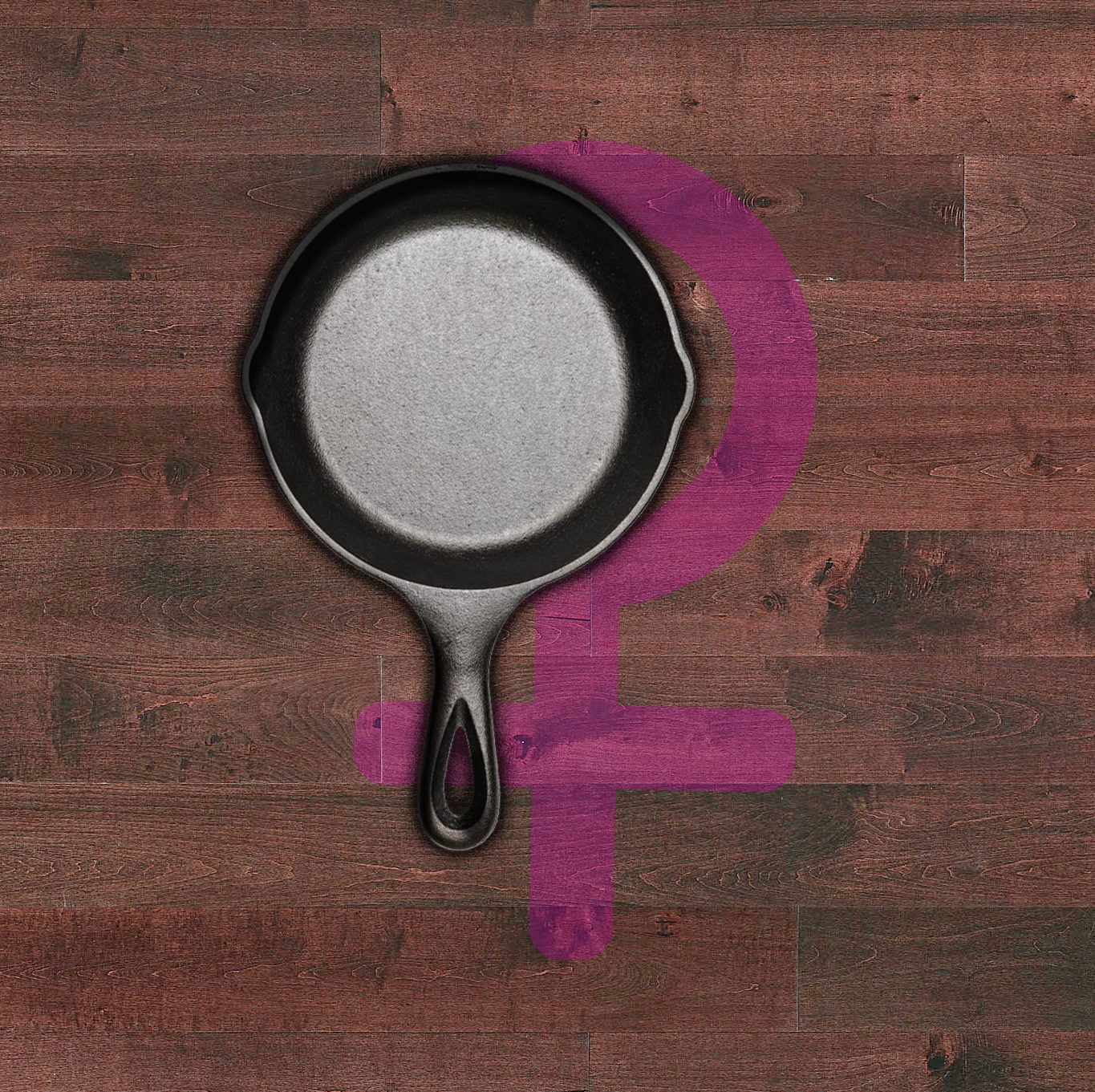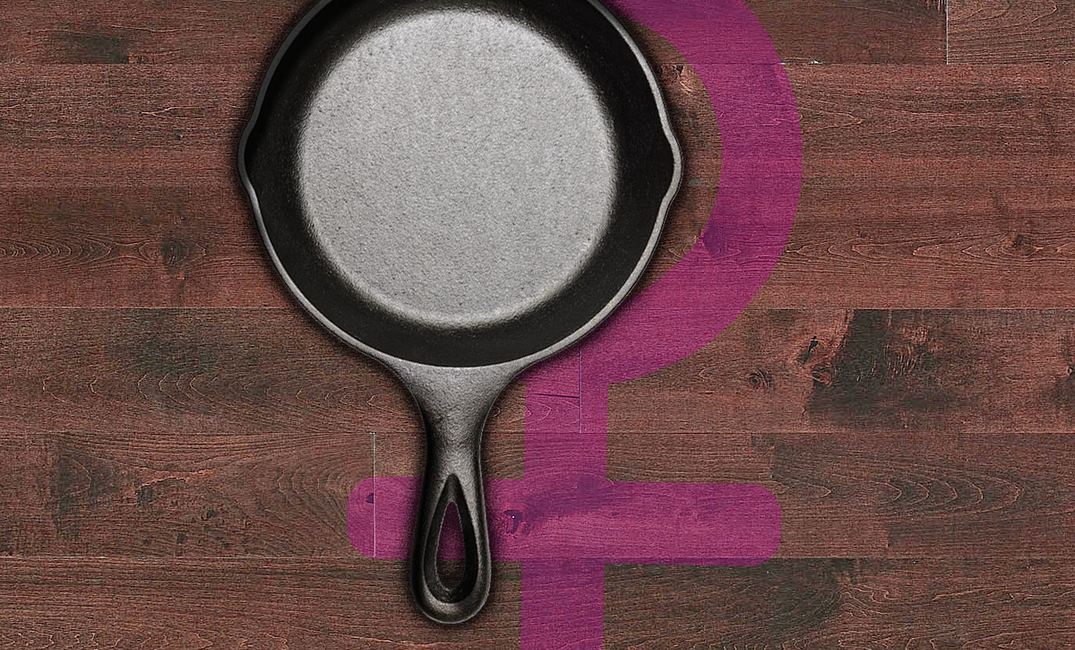
There’s a common narrative in the restaurant industry that the scene is dominated by men. Blame it on ego or members of the media — who often speak only to the loudest in the crowd — but women chefs have always been a force to be reckoned with. They’ve just finally found their voices.
Perhaps it’s the political situation, which is slowly starting to strip women’s rights bit by bit, or just the Bay Area’s geriatric restaurant critics. In spite of it all, badass women restaurateurs and chefs are finally making themselves known.
Their presence comes in spite of the odds of achieving success being stacked against them. You’ve likely heard the statistics: women are still paid 79 cents (or more) on the dollar; women-led companies were involved in just 4.49 percent of VC deals in 2016; and a new study shows that Millennial males feel that women’s gains have come at the expense of men (they haven’t).
Despite the obstacles, women are prevailing in the food industry.
Take, for example, Fernay McPherson, recently named one of the San Francisco Chronicle’s Rising Star Chefs, who expanded her soul-food pop-up, Minnie Bell’s Soul Movement, while searching for a brick-and-mortar location. First-time female restaurateurs, like Azhar Hashem of Tawla or Jen Pelka of The Riddler, are celebrating their first anniversaries, and business owner Harper Matheson of City Counter just unveiled a FiDi diner.
But looking back just a few years, one can easily observe that San Francisco wasn’t all that welcoming to the female chef — despite being the birthplace of the women-led farm-to-table movement.
It’s hard to talk about food in the Bay Area without talking about the farm-to-table movement, of which women have always been at the forefront — defined decades ago by pioneers like Alice Waters, Sue Conley and Peg Smith, and Bette Kroening. These women entrepreneurs sold their first homes to fund their businesses, didn’t pay themselves for eight years and helped define labor laws — all miraculously while their businesses continued to thrive. The challenges these women faced, endured and swallowed without pomp and circumstance were revolutionary.
“It’s not abnormal to be called a ‘bitch’ in the kitchen.”
Yet since the ’70s, progress for the female chef, restaurateur and entrepreneur has stalled. Much of it has to do with a struggling economy; today, labor shortages, rental costs and a demanding audience make our region notoriously difficult to break into.
And while it’s difficult for anyone, it’s particularly brutal for women. Dealing with sexism, discrimination and stereotypes is something men never have to consider when opening a restaurant. It’s why Harper of City Counter and Jessie Barker and Madelyn Markoe of Media Noche have decided to etch out their own paths.
It’s not abnormal to be called a “bitch” in the kitchen, Gayle Pirie, co-owner of Foreign Cinema, admitted in her Hot Take piece for Eater — nor did she feel that it was ever an issue. “As a woman, you have to develop thick skin, work extra hard and develop this cool,” Barzotto’s Michelle Minori told the San Francisco Chronicle in her 2017 Rising Star Chefs profile. Becky Broeske, the former pastry sous chef at Absinthe Restaurant Group, was once quoted as saying that she handles working in the male industry with “fart jokes and showing lots of leg.”
“It’s actually not OK,” Harper told me just days before City Counter, her FiDi eatery, officially opened to customers. A veteran of the New York City restaurant scene, Harper was sick of the industry’s masochistic environment, a place she was just expected to accept, and returned to the Bay Area for a fresh start. That’s when the idea of opening a simple diner selling fresh, classic meals happened.
“I’ve worked in plenty of big, hot, loud, disgusting, misogynistic kitchens, and I realized I don’t need to put up with this. If the hot, loud kitchen is not your thing, it’s important to know that there’s an alternative, and there’s something else out there for you.” That something may be in a women-owned restaurant or a women-led kitchen.
“When we started this process,” said Madelyn of Media Noche, a new Mission-based Cuban eatery, “we didn’t really think we were the exception to the rule.” Markoe and her business partner, Jessie Barker, met while working at Tres. Their years of industry experience provided unrivaled mentors and a host of industry veterans to consult when questions arose about opening their first business. Still, the process wasn’t easy.
“In the fundraising process, there seems to be a boys’ club,” Barker told me when I spoke with her outside the restaurant in May. “We ended up hitting up friends and family [to fundraise] … but there were so many restaurant investors we were connected to who didn’t take our concept seriously. Nor were we invited to a lot of the forums where these deals take place — like poker nights — which tend to not be the most accepting places for women.”
That boisterous boys’ club is often what keeps women quiet; the same guys continue to bat for one another over and over again, leaving women-led endeavors with limited media opportunities — and thus limited growth.
“A lot of women suffer silently and don’t speak out, because whenever they do, the backlash is horrendous,” said Gwyneth Borden, executive director of the Golden Gate Restaurant Association. But women do have something incredible to share — they just have to get through the noise of a masochistic work environment in order to be heard.
As more women find their voices in an antiquated industry, things are starting to shift. And that’s most noticeable when it comes to accolades.
This year was the first that the Chronicle celebrated a diverse group of Rising Star Chefs (entirely absent were white males). Just four years ago, women were notably absent from the Chronicle’s Rising Star Chef roundup, and the paper’s food-and-wine editor, Michael Bauer, made excuses for this fact. “Traditionally, the Bay Area has nurtured female chefs, but for the last several years, we haven’t been able to tap any who are on the verge of making their marks,” he wrote in the 2013 issue. That was hardly the case: Preeti Mistry opened Juhu Beach Club that year, and a year before that, Dominque Crenn opened Atelier Crenn. Crenn now has the title of the World’s Best Female Chef, along with two Michelin stars; fans of Mistry’s South Indian cuisine include Anthony Bourdain, among others.
This absence of women from the city newspaper’s annual celebration of chefs was entirely the problem and proved just how far the Bay Area still has to go in order for women to be accepted — and heard — in the industry.
“In recent years, it’s become something to talk about: ‘Where are all the great women chefs?’” Gayle wrote in her Eater piece. “But they’re around. They’re here.”
Just a few years ago, more female chefs were awarded Michelin stars than in any other year previously, and in 2017 James Beard handed four female chefs recognition in the categories of Best Chef: South, to Rebecca Wilcomb; Best Chef: Northwest, to Gabrielle Quiñónez Denton (with Greg Denton); and Best Chef: Great Lakes, to Sarah Grueneberg.
We’re lucky that the Bay Area has always been host to some of the country’s most celebrated chefs. But it wasn’t until 2012 that Dominique Crenn was awarded two Michelin stars (the first time a female chef in the United States was given such an honor) — more than a century after the guide began handing out stars to men.
Recognizing the problem is often the first step. As a food media journalist, it’s crucial to keep reporting on everyone’s wins to level the playing field. At the same time, it’s also important to recognize that the playing field isn’t yet level and that women’s successes should be praised even more enthusiastically. The female restauranteur, entrepreneur and chef has a voice that is slowly starting to evolve from a whisper to a shout, and we should be excited about the prospects (and the meals).







